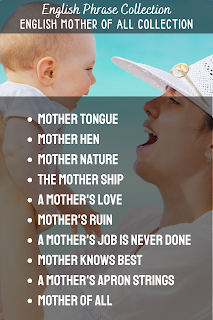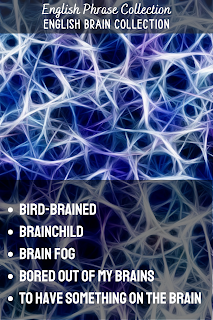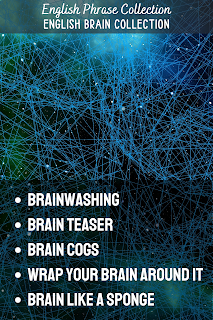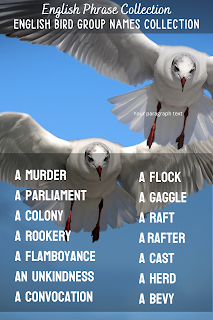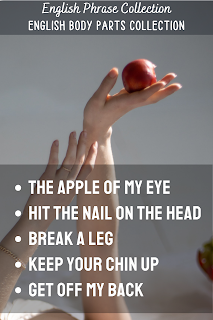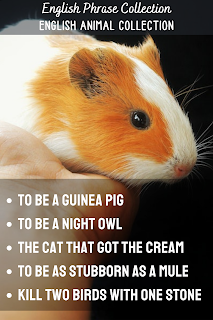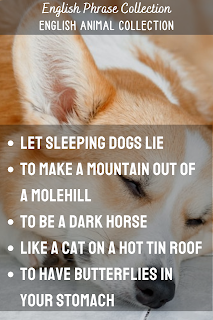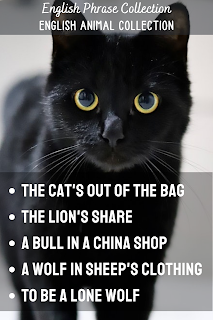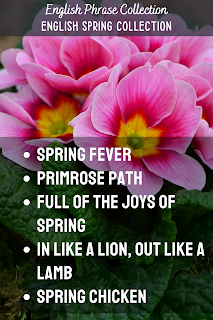5 Essential Spring Idioms
English Blue Colour Related Collection
Blue-tiful English Idioms: Exploring Blue Colour-Related Expressions
Idioms are a fascinating aspect of any language. They add colour and depth to communication, and they can help you express complex ideas in a simple and concise way. One category of idioms that stands out is the colour-related idioms. In this blog post, we will explore some of the popular English blue colour-related idioms and their meanings.
True blue
The expression 'true blue' refers to someone who is loyal, faithful, and dependable. The origin of this expression is unclear, but it's believed to have come from the blue dye used to colour high-quality wool in medieval times.
For example, "You can always count on Sarah. She's a true blue friend."
English Colour Related Collection Part 2
A Collection of English Colour-related Idioms Explained
English Colour Related Collection Part 1
Exploring the Meaning Behind 5 English Colour Idioms
English Mother of All Collection
Celebrating Mothers: The English Mother of All Collection - 10 Idioms to Honour Moms on Mother's Day
The English Brain Collection Part 4
The English Brain Collection: 5 Popular Idioms That Will Help You Speak Like a Native
English Brain Collection Part 3
Unlock Your English Language Skills: 5 Common Idioms Involving the Word 'Brain'.
English idioms are a great way to add colour and personality to your language skills. In this blog post, we'll explore five common English idioms that involve the word "brain." From brainwashing to brain teasers, these phrases will help you understand and use idiomatic expressions like a native speaker.
Brainwashing
When someone is "brainwashed," it means that their thoughts and beliefs have been changed or influenced through a persistent and often manipulative effort. The term originally referred to a type of interrogation and psychological torture used by some militaries, where prisoners would be subjected to intense and often violent conditioning until they no longer held onto their original beliefs. Today, the term is more commonly used to describe any kind of persuasion or indoctrination that is seen as unethical or overly controlling.
English Brain Collection Part 2
Elevate Your English Game - Brain Idioms Edition
English Brain Collection Part 1
Unlocking the Power of English Idioms - Brain Edition
English Bird Group Names Collection
The Unusual English Group Names of Birds
English Gold Related Collection Part 2
Shining Like Gold: 5 Essential English Idioms to Know
Idioms are an essential part of any language. They are phrases that have a figurative meaning, which is different from their literal interpretation. Idioms can be confusing, but once you understand their meaning, they can add colour and flavour to your conversations. In this blog post, we will discuss five popular idioms related to gold.
Worth its weight in gold
When we say something is worth its weight in gold, we mean it is very valuable. For example, "The information she provided was worth its weight in gold." The phrase originates from the fact that gold is a valuable metal and its weight is often used as a unit of measure for currency.
English Gold Related Collection Part 1
The Language of Gold: 5 Popular English Idioms Explained
English Silver Related Collection Part 2
5 English Idioms Related to Silver You Need to Know
English Silver Related Collection Part 1
Shining a Light on English Idioms: Exploring Popular Silver Related Expressions
English Wind Collection Part 2
Whistling in the wind: Understanding the Origins and Meanings of Common Wind Idioms
English Wind Collection Part 1
English Body Parts Collection Part 2
English Body Parts Collection Part 1
From Apples to Legs: Five Common Phrases Explained
The English language is full of idiomatic expressions that can be challenging to understand for non-native speakers. Many of these expressions include body parts, such as "the apple of my eye" or "break the leg". In this blog post, we will explore the meanings and origins of these common phrases.
The apple of my eye
This phrase is used to describe someone or something that is cherished above all others. The origin of the phrase can be traced back to the Bible, where it appears in several verses. The phrase refers to the pupil of the eye, which was once believed to be a round, solid object like an apple.
English Animal Collection Part 6
The Animal Kingdom of Idioms: 5 Phrases You Need to Know
English idioms are a rich and colourful aspect of the language. They add flavour and humour to conversations and often involve animal references. In this blog post, we'll explore five English animal idioms and their meanings.
Smells Fishy
The expression "smells fishy" refers to something that seems suspicious or not quite right. The phrase comes from the fact that fish can have a strong, unpleasant odour if they're not fresh. If something smells fishy, it might be a sign that there's something shady or questionable going on.
Example: "The whole situation smells fishy. I think we should investigate further."
English Animal Collection Part 5
Animal Magnetism: A Guide to 5 Common Idioms Involving Animals
Idioms are a fascinating aspect of the English language, and animal based idioms are particularly intriguing. From "barking up the wrong tree" to "let the cat out of the bag," these expressions often involve animals in creative and unexpected ways. In this blog post, we'll explore five animal idioms in English and their meanings.
Crocodile Tears
The expression "crocodile tears" refers to fake or insincere displays of emotion. The phrase comes from the ancient belief that crocodiles would shed tears while devouring their prey. However, it's now known that crocodiles do not cry while eating, and the expression has taken on a more metaphorical meaning. If someone is said to be shedding crocodile tears, it means that they're pretending to be upset or sympathetic when they're actually not.
English Animal Collection Part 4
Crushing It with Idioms: Mastering the Art of Animal-Inspired English Expressions
English idioms are a fascinating aspect of the language, adding colour and character to everyday conversations. Many of these expressions are inspired by animals, using the behaviour or characteristics of creatures to convey a particular meaning. In this blog post, we'll explore five popular English idioms featuring animals and their origins and usage.
To be a guinea pig
When we say someone is a "guinea pig," we mean that they are the first person to try out something new or untested. This expression likely comes from the use of guinea pigs in scientific experiments, where they were often the first animals to be tested on. Today, we use this idiom to describe someone who is a willing test subject or who is trying out something new.
English Animal Collection Part 3
Exploring the Wild World of English Idioms: Animal Inspired Expression
English Animal Collection Part 2
Unveiling the Hidden Meanings in English Language
Have you ever heard someone say "the cat's out of the bag" or "a wolf in sheep's clothing" and wondered what they were talking about? Fear not, for we are here to help you decipher these animal related idioms and add some flair to your language!
English Animal Collection Part 1
Unleashing the Animal Idioms: A Guide to Understanding and Using English Animal Idioms
Take the Bull By the Horns
This idiom means to face a difficult or challenging situation without hesitation. It comes from the practice of bullfighting, where the bullfighter grabs the bull's horns in order to control it.
English Spring Collection Part 2
Embrace the Fresh Start of the Year
Spring fever
The idiom "spring fever" is used to describe the feeling of restlessness and excitement that people often experience in the springtime. It's a time when people are eager to get outside and enjoy the warmer weather, and it can be difficult to focus on work or other responsibilities.
English Spring Collection Part 1
Exploring Idioms for the Season
Spring Cleaning
The phrase "spring cleaning" is used to describe the annual practice of thoroughly cleaning one's home, usually in the springtime. This tradition dates back to ancient times, when people would clean their homes to get rid of the soot and dirt that had accumulated during the winter months.
Nationality Related Idioms Part 2
Exploring the Fascinating World of Nationality Related Idioms
Mexican wave
First up is the "Mexican wave". This is a term used to describe the phenomenon of a wave of people standing up and sitting down in quick succession at a sporting event or concert. Although it's unclear where the term originated, it's likely that it became popular due to its use at the 1986 World Cup in Mexico. Despite some people finding it controversial, it remains a popular term today.
Nationality Related Idioms Part 1
The Power of Language: Understanding the Cultural Significance of Idioms with Nationality References
Chinese whispers
First up, we have "Chinese whispers". If you grew up playing this game, you'll know that it involves whispering a message from person to person, with the end result often bearing little resemblance to the original message. The phrase "Chinese whispers" is actually considered offensive by some, as it perpetuates negative stereotypes about the Chinese language. But let's face it, the idiom is just too catchy to ignore.
A Special Collection of English Phrases
Get Your British Slang On
Gobsmacked
First up, we have "gobsmacked", which means utterly surprised or shocked. Imagine being hit in the face with a gobstopper - that's how surprised you'll be!
Smashing
Next, we have "smashing", which means excellent or really good. Use it to describe anything from a cup of tea to a football match.
I'll give you a ring
If a Brit says "I'll give you a ring", don't worry - they're not going to give you a piece of jewellery. It just means they'll give you a call.
Negative Personal Qualities Collection
Learn to Identify and Avoid These Traits
Pain In the Neck
First on the list is "a pain in the neck," which refers to someone who is irritating or bothersome. For example, "My boss is always micromanaging me. He's such a pain in the neck."
Big Mouth
Coming in at number two is "big mouth," which describes someone who can't keep a secret or talks too much. For instance, "I can't tell Jane anything in confidence. She has a big mouth."
Positive Personal Qualities Collection
Shine with Positive Personality
Easy Going
The idiom "easy going" describes someone who is relaxed, laid-back and not easily bothered by things. It's often used to describe someone who doesn't get upset easily and goes with the flow. You could say, "My boss is really easy going, she never stresses over anything."
To Have a Heart of Gold
This idiom describes someone who is kind, generous, and has a good nature. It's often used to describe someone who is always willing to help others and has a soft spot for the less fortunate. For example, "My friend Mark has a heart of gold, he's like a human ATM, always willing to lend a hand or spare change!"

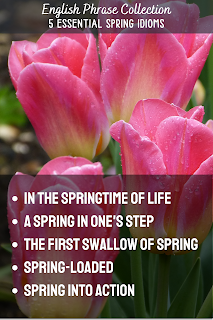
.png)
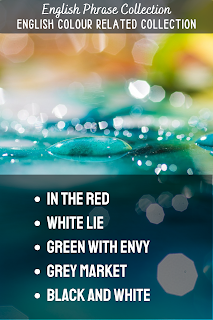
.png)
